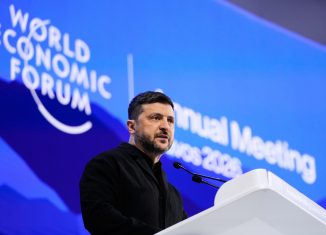16th Supreme Allied Commander at NATO and best-selling author James Stavridis joined the Brian Kilmeade Show today to discuss the U.S. killing of Iranian General Qassem Soleimani and the possible repercussions the U.S. may face in response. Adm. Stavridis called the killing a “tactical success,” saying it’s hard to argue against it. Adm. Stavridis continued:
“What we ought to be focusing on is how can we take advantage of what appears to be a new level of deterrence in the view of the Iranians. How can we construct a strategy to further contain the Iranian economy, the maximum pressure campaign, and how can we find a way to overcome what Iran is going to do next? I predict they will do more disruption but they will stay short of attacking American assets or killing Americans. So in that sense I think the raid was successful in raising that level of deterrence.”
Adm. Stavridis also addressed what has happened in Iran since the killing of Soleimani, including the taking down of a jetliner with two missiles:
“This is really a mistake in the fog of war. I feel for the Iranians that made that decision… I don’t think this was a deliberate act, the people who did it will be punished. It’s a tragedy but it comes from the overall bad behavior of the Iranian regime.”
Addressing the riots that have been happening inside Iran demanding accountability from their own government, Adm. Stavridis said:
“It is very positive to watch that and certainly whether this translates into a movement that overtakes a country… I think there’s a possibility of the regime facing further antagonism from its own people. But this is a brutal regime still with its hand firmly on control of the revolutionary guards as well as the armed forces. I think there’s at best a 1 in 4 or 1 in 5 chance of this continuing to rock the regime. Sadly, my prediction would be it will settle back down and the regime will remain in control.”
Lastly, Adm. Stavridis shared what next steps the U.S. should take moving forward, including keeping the economic pressure on, working with the Europeans to prevent Iranian disruption, and continuing to keep sufficient troops and military force forward in the region to maintain the new level of deterrence we’ve achieved.
Listen to the full interview below:







